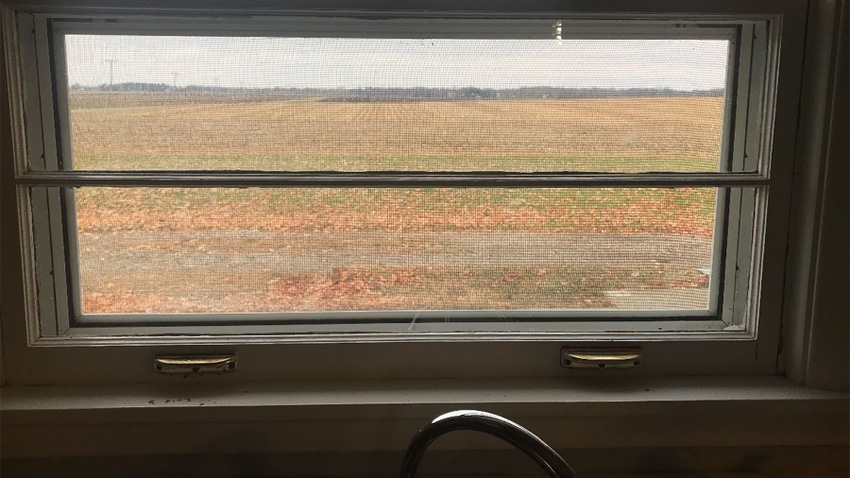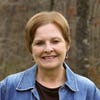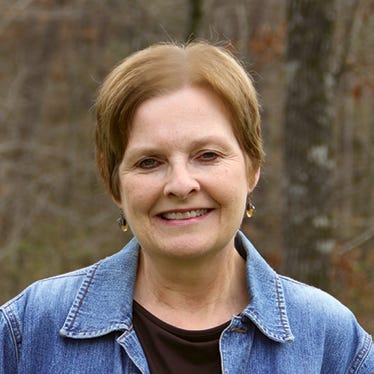December 1, 2023

“The ground’s still pretty frozen at your mom’s place,” said Bob Kuntz, one of our farm operators, in late October.
Bob’s reference to “Mom’s place” lingered longer than usual in my ears. Like the farmhouse that sits adjacent, the field is a tangible reminder of the landscape Mom inhabited for much of her 86 years.
Perhaps it’s fitting that “Mom’s place” was the last of our fields to be combined in 2023, after the others were laid to rest for the winter. My mom passed away in mid-July, while the corn there was still growing. And it was the setting she could still recall once Alzheimer’s began robbing her of the people and places she once knew.
In the 1950s, Mom’s parents purchased the field and neighboring acreage where they built the farmhouse. From the window above the kitchen sink, Mom looked out on the field planted in corn or soybeans, and for a time, wheat.
As Mom’s life evolved — leaving for college, enduring the sudden death of her father, marrying my dad, raising my brother and me in that same farmhouse — the scene outside the kitchen window remained a constant characterized by change. Season after season, crops took root on the same 79 acres, and like the lives unfolding inside the farmhouse, experienced periods of growth and struggle.
Who knows how many hours Mom spent looking out on the field that bears her name? I imagine the view outside that window reflecting moods that sometimes mirrored the goings-on inside the house, the busyness and the lulls, anticipation and disappointment.
A farm with a history
In agriculture, there’s a centuries-old tradition of naming our surroundings to capture their uniqueness and significance to those who dwell there at a particular point in time. If we’re lucky, those names take hold and are passed down to future generations, along with the stories they represent.
The desire to assign identities to parcels of land reaches far and wide.
While in Ireland the month before Mom’s passing, I met David Ross, a third-generation farmer from Drimoleague, West Cork, who owns or rents 31 fields spanning the hilly landscape. Over a cup of Irish tea, I asked about his family’s farming history and the descriptive field names that populate his Herdwatch app.
There’s “Black Oak Stick,” named by David’s grandfather to signify the “long plank used in a gap before they had gates.”
“By the river” reveals a distinctive topographical feature, while “Sheep Field” marks the beginnings of David’s sheep farming operation 35 years ago.
And “Shovel Field,” David guesses, must have been the name his grandfather devised after “losing his shovel” there!
Like “Mom’s place,” many of the Ross family’s fields are named after previous stewards. “Hannah’s Field,” “John’s Three Corner Field” and “Niall’s Field” serve as reminders of the men and women who tread hectares of rocky Irish soil.
David reminded me that place names “tie us to the past,” revealing what is “important to us” both then and now.
Plot twist
For me, the story behind “Mom’s place” began to unwind in 2017 when I returned to Illinois to care for my dad during his final months.
As Dad and I sat at the kitchen table discussing the running of the farm after he was gone, I learned something unexpected. While both my parents’ names appeared on deeds for property they acquired after marriage, the parcel running alongside the farmhouse belonged solely to Mom. The land had been handed down to her by her mother, and it will now be passed on to me.
My mom had a place of her own all along, a plot twist that enriches the legacy she leaves behind.
Ryan is a farmer’s daughter from Clinton, Ill., and a professor at the University of Alabama at Birmingham. Following her father’s death and mother’s relocation to her Alabama home, Ryan manages the family farm from afar.
About the Author(s)
You May Also Like






